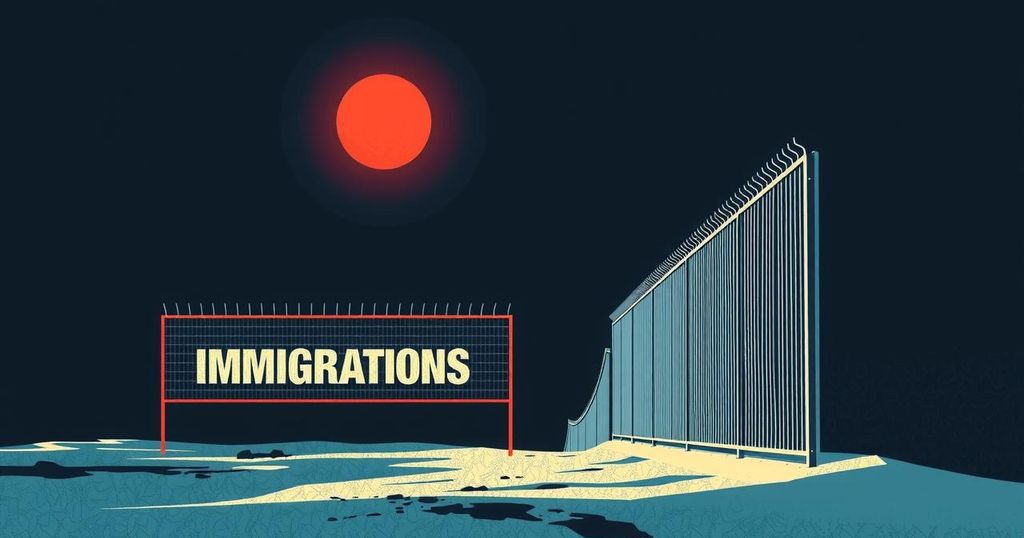Trump Administration’s Controversial Deportation of Migrants Amid Legal Challenges

The Trump administration deported hundreds of migrants to El Salvador despite a federal judge’s order to halt the removals. The judge’s directive was not adhered to, raising legal concerns about the invocation of the Alien Enemies Act of 1798. The ACLU is investigating potential violations, while the legal fate of the deported migrants remains uncertain.
The Trump administration has deported hundreds of migrants to El Salvador, despite a federal judge’s recent order that temporarily halted their removal. U.S. District Judge James E. Boasberg issued his ruling while two planes en route for El Salvador and Honduras were already in the air. Although he verbally instructed the planes to turn back, this directive was not included in his written order, resulting in the continued deportations.
Salvadoran President Nayib Bukele, an ally of Trump, acknowledged the situation with a dismissive comment on the social media platform X, indicating the planes had already departed. Secretary of State Marco Rubio also discussed the matter, highlighting that over 250 individuals identified as members of the Tren de Aragua gang had been sent to El Salvador to be detained at a considerable cost to taxpayers.
The deportations followed the application of the Alien Enemies Act of 1798, a seldom-used law that grants extraordinary powers in times of war, allowing the president to detain or deport foreigners lacking legal protections. This law has historical precedents dating to past U.S. conflicts, including World Wars I and II.
The ACLU, which prompted the judge’s restraining order, is investigating whether the deportations were in violation of the court’s directive. Lead lawyer Lee Gelernt stated they are waiting for governmental assurances regarding compliance with the order and are conducting their own inquiries.
In a separate statement, Venezuela’s government condemned the invocation of the Alien Enemies Act, equating it to the darkest historical periods, including slavery and Nazi concentration camps. The Tren de Aragua gang, linked to a significant outflux of Venezuelans fleeing economic collapse, has been targeted politically by Trump during his campaign.
The Trump administration did not specify which migrants were deported nor provided evidence linking them to criminal activities in the U.S. During the deportation process, video footage depicted the individuals being escorted under heavy police presence and undergoing humiliating treatment upon arrival in El Salvador.
The administration contended that the deportation order was issued shortly before the judge’s ruling and claimed that it was within the president’s authority to act swiftly. However, immigration attorneys have raised concerns about the potential misuse of this authority, fearing that any Venezuelan could face wrongful deportation based on mere allegations of gang affiliation without due process.
Judge Boasberg’s decision to restrict the deportations applies for up to 14 days, allowing migrants to remain in federal custody while further arguments are scheduled for hearing. He emphasized the importance of judicial oversight, stating that preventing potential constitutional violations required immediate action.
In summary, the Trump administration’s recent deportation of hundreds of migrants to El Salvador, despite a judge’s order to pause these actions, has raised significant legal and ethical concerns. The use of the Alien Enemies Act under such circumstances is contentious and suggests potential overreach of presidential power. The ACLU and immigration advocates are closely monitoring the situation to ensure due process rights are upheld for affected migrants. The legal proceedings will determine the future of this controversial policy.
Original Source: apnews.com








